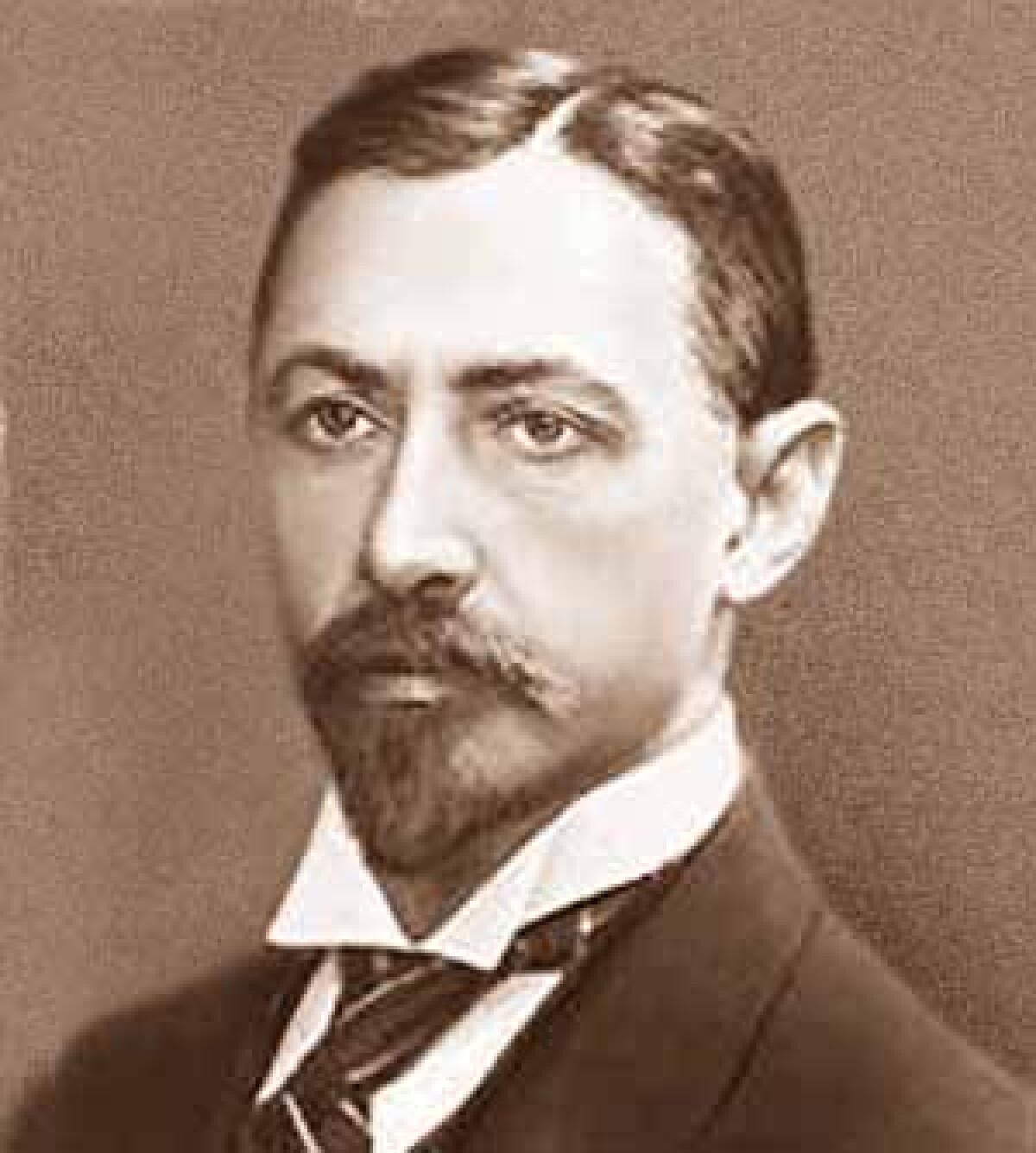Bunin Ivan
Ivan Bunin (22 October 1870 , Voronezh, Russian Empire- 8 November 1953 , Paris, France) was the first Russian writer to win the Nobel Prize for Literature (1933).
He was born Ivan Alekseevich Bunin on October 22, 1870 on his ancestral estate near Voronezh, Russia. His father, Aleksei Bunin, and his mother, were descendants of several lines of old nobility that included Russian landed gentry and Luthuanian knights. The Bunins were landlords and serf-owners; but Bunin's father lost his estate in a unfortunate card-game spree, leaving his family in a financial ruin. Young Ivan Bunin spent his childhood around the peasant surfs on his estate. He went to a grammar school in the town of Yelets, but after only five years of school he had to return back home. Bunin continued homeschooling under the tutelage of his elder brother, who was a university student. Brother encouraged Bunin to write and read Russian classics such as Alexander Pushkin, Nikolai Gogol, Mikhail Lermontov, Leo Tolstoy, and others.
Bunin published his first poem at the age of 17, in a literary magazine in St. Petersburg. His first short story 'Derevenski eskiz' (aka.. Country Sketch) was published in 1891, it was soon followed by publications of more poems and short stories. At that time he had a job as an assistant editor of a local newspaper in the city of Orel, Russia. His stories were published in several newspapers and magazines across Russia. At that time Bunin started a correspondence with Anton Chekhov, and with a passage of time the two writers became close friends. In 1894 Bunin met Leo Tolstoy. He admired the works of Tolstoy, but their social and moral views were quite different. Bunin's communication with Maxim Gorky led to their meeting in 1899 and both writers developed good friendship. During the 1900s Bunin and Gorky spent several winters together on the isle of Capri. At that time Bunin had several publications through the Znanie (Knowledge) group, which was founded and managed by Maxim Gorky.
By 1900 Ivan Bunin had published over 100 poems. His 1899 translation of 'The Song of Hiawatha' by Longfellow was awarded the Pushkin Prize and Gold Medal from the Russian Academy of Science. His other translations included Lord Byron's 'Manfred', Tennyson's 'Lady Godiva', and poems by Alfred de Musset. In 1909 Bunin was elected one of the 12 full members of the Russian Academy of Sciences. In 1910 he published his first full-scale novel 'Derevnya' (The Village), and in 1912, 'Sukhodol' (Dry Valley), a nostalgic portrayal of decaying Russian nobility based on the true story of his own family. Bunin traveled extensively in Russia and abroad, in Palestine, Egypt, Turkey, Algeria, all-over Europe and Asia. His first marriage to the daughter of a Greek revolutionary ended in divorce. His second marriage in 1907 lasted his all life.
Bunin witnessed the terror and destruction caused by communists during the Russian Revolution of 1917. He fled from the Bolshevok communists by moving from Moscow to Odessa. There Bunin lived for 2 years hoping that the White Russians might restore order and beat the communist revolutionaries, but soon revolutionary chaos spread all over Russia. In February 1920 Bunin had to leave all his property behind under the threat of approaching communist armies. He swiftly emigrated aboard the last French ship leaving Odessa with other anti-communist Russians, and eventually settled in Grasse, near Cannes, in the south of France. There he published his eyewitness account of the Russian Revolution in the form of a diary entitled 'Okayannye dni' (The Accursed Days 1925-26). In it Bunin described the Soviet government by writing of them: What a disgusting gallery of convicts!
He was the eldest of Russian émigré writes, and was regarded by all intellectual émigrés as the last one writing in the high tradition of Leo Tolstoy and Anton Chekhov. Bunin was the first Russian writer to win the Nobel Prize for Literature in 1933. At that time Bunin received congratulations from intellectuals from all-over the world, but not a word from the Soviet Russia, where his name and his books were banned. On his way to accept the Nobel Prize in Stockholm, Sweden, Bunin had to pass through Germany. There he was arrested by the Nazis on a false accusations of smuggling jewels, and was forced to drink a bottle of Castor oil. Bunin had a staunch anti-Nazi position, he was known for sheltering a Jew in his home during the Nazi occupation of France.
Bunin's best known books 'Solnechny Udar' (A Sunstroke 1927), 'Zhizn Arsenyeva' (The Life of Arsenyev 1933), 'Lika' (1939), and 'Tyomnye Allei' (Dark Alleys, or in some translations, Shadowed Paths, 1943) are among the highest achievements in Russian literature of the 20th century. Bunin's poetry was highly regarded by Vladimir Nabokov. However, most of Bunin's books were banned in Russia under the Soviet censorship, because of his truthful and frightening description of chaos and destruction caused by the communists after the Russian revolution of 1917. Later, every year in the morning of the 8th of November, Bunin suffered from painful traumatic memories about the collapse of Russia caused by the communist takeover that happened on that date in 1917. He died of a heart attack in the morning of November 8, 1953, in his apartment in Paris, and was laid to rest in the Russian Cemetery at Sainte-Geneviève-des-Bois in Paris.
Selected works by Bunin were published posthumously in Russia, in 1956 -1961, during the Thaw that was initiated by Nikita Khrushchev.
Share:









